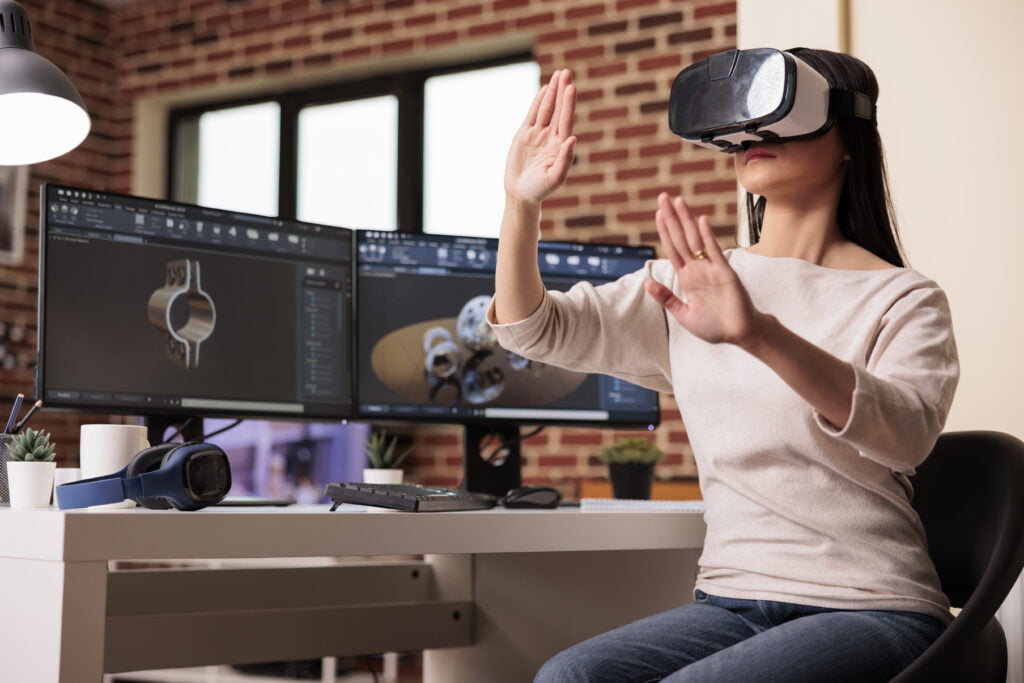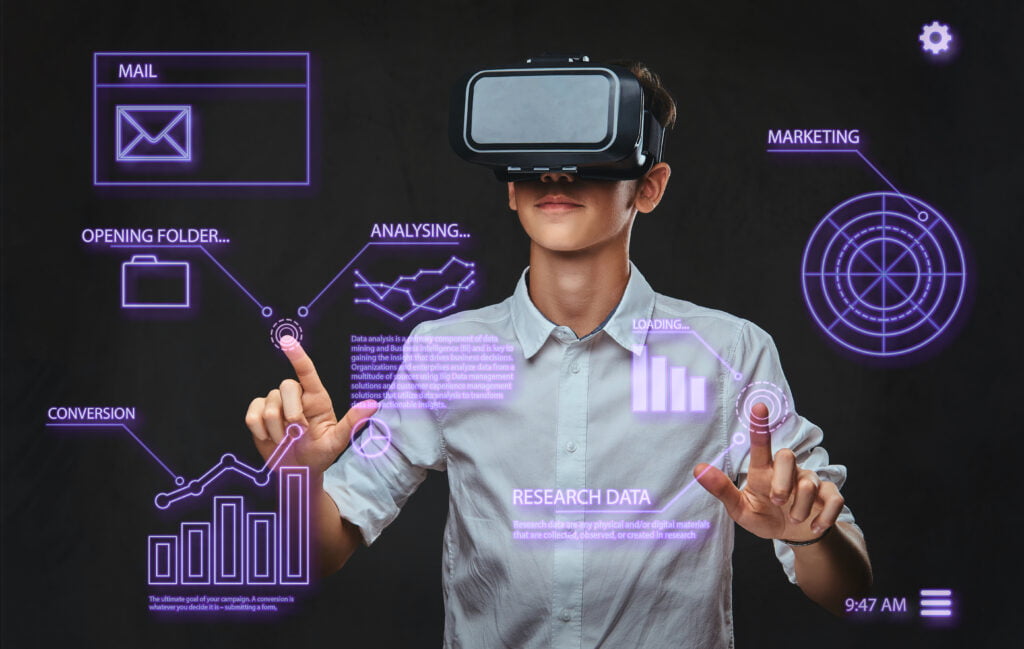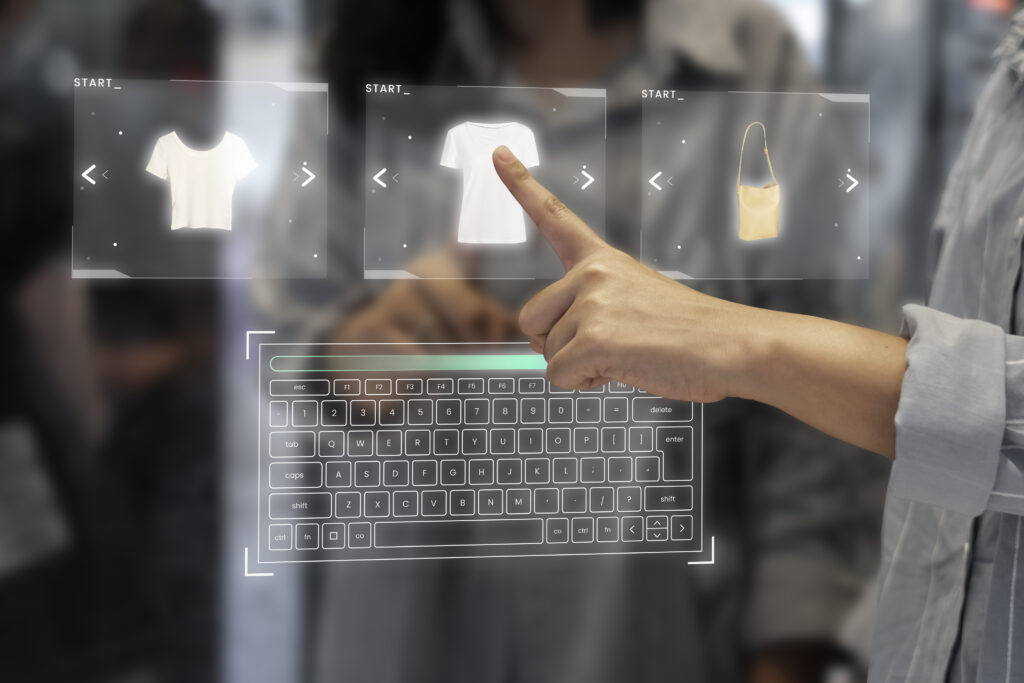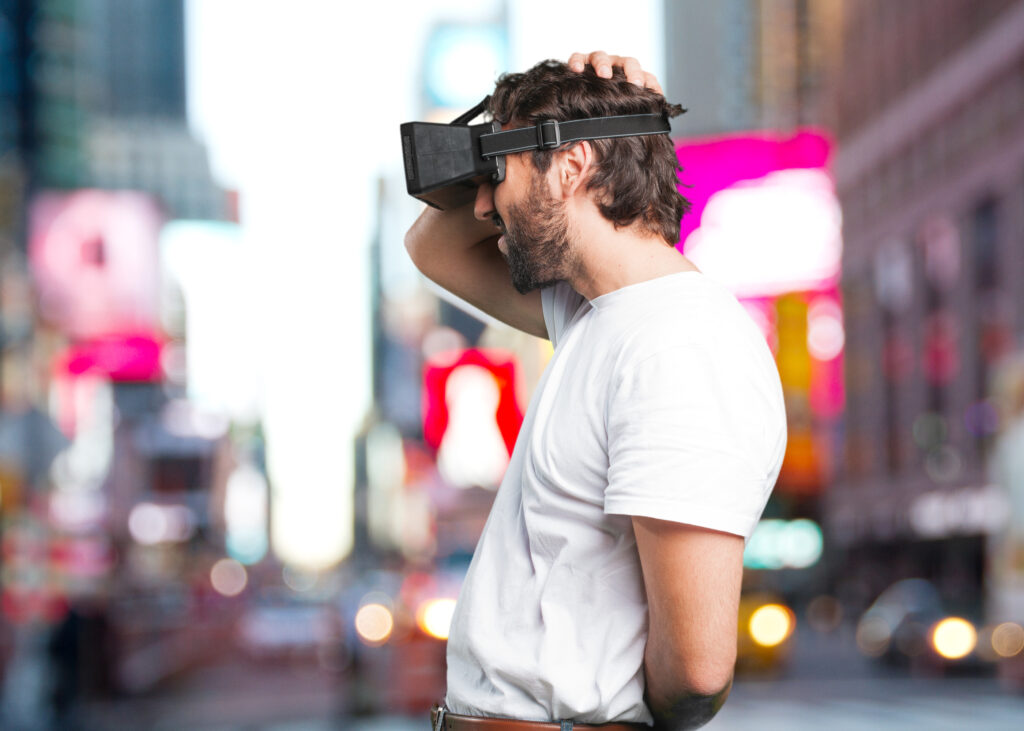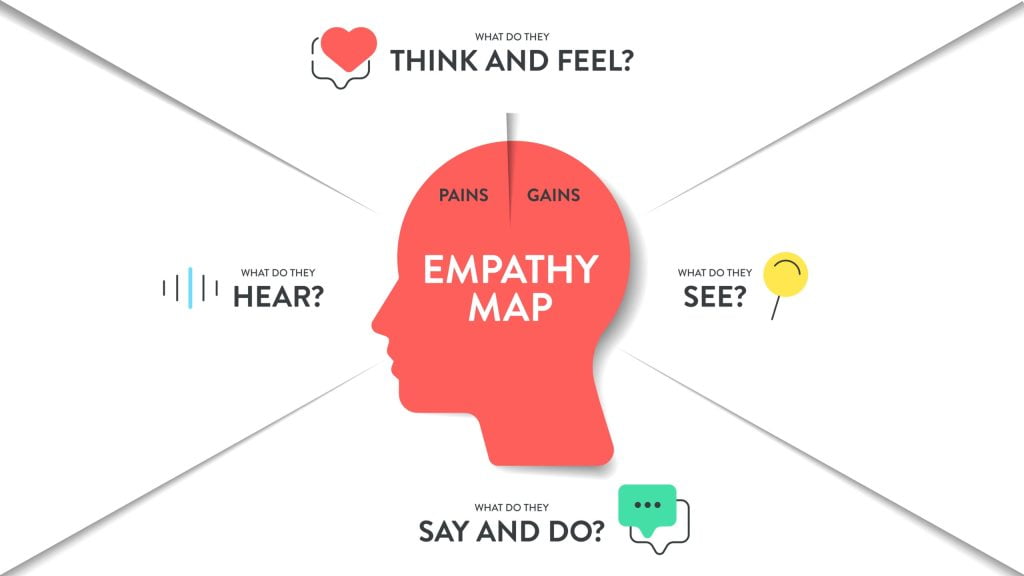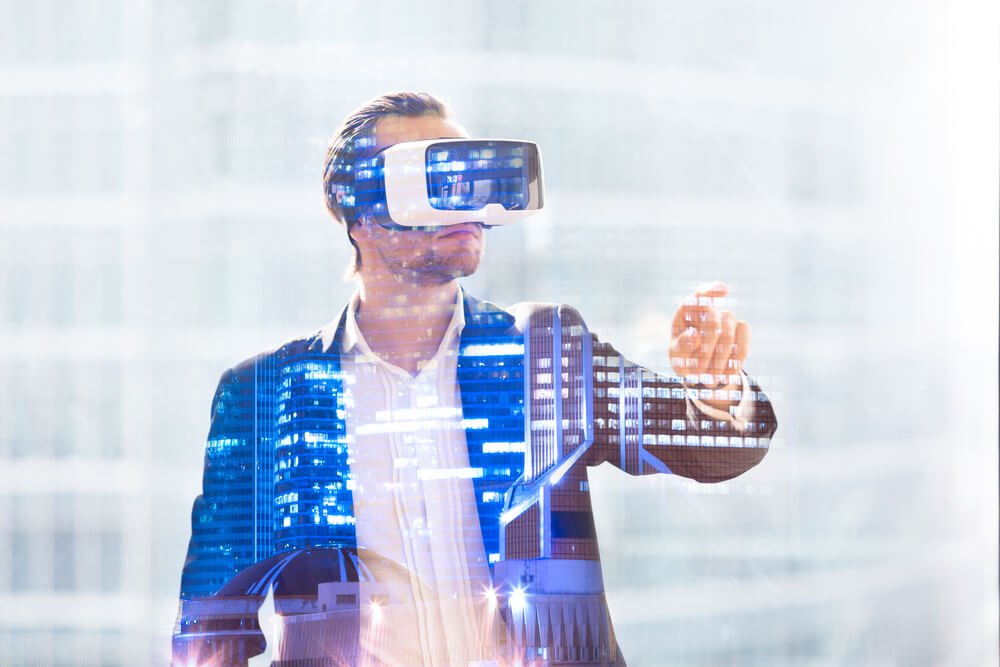How The Metaverse Will Change The World
Table of Contents:
While many companies are investing in the metaverse, it’s not exactly true to say that it is here yet. Right now, all we have is a collection of distinct ‘metaverses’ or online virtual realms which are attempting to experiment with these ideas and grow into something which might become part of a larger, more interconnected metaverse in the future. Therefore, it is hard to know exactly where this new technology is taking us, let alone what effects it might have on the planet. However, one thing is clear – the metaverse is coming, whether it be in a matter of years or decades, and when it does, it will inevitably change the world. In this article, we discuss what some of these changes might be.
Beyond the internet
The internet has been one of the most impactful technologies of the last 20+ years, completely changing the way we live our lives. The metaverse has the potential to have the same kind of effect, taking us beyond the internet, potentially making it obsolete; it could even replace smartphones. Ray-Ban recently partnered with Meta to create their Stories smart glasses, giving users the ability to carry out traditional smartphone functions on a pair of glasses. Using this stylish accessory, people can take photos, record videos, listen to music, take calls, and share content to their social media channels. That already covers a lot of what can be done with a smartphone, and it won’t be long before more capabilities are added to these devices. With constant improvements in VR headsets, it’s possible to envision a future where these two things could be brought together, with a simple pair of glasses covering the use of both.
Read also: Smart Glasses And The Metaverse
Decentralization
If it doesn’t make the internet obsolete, it will certainly alter how we experience the internet, with the advent of Web 3.0 bringing a far more decentralized world where individuals have increased control over how their time and data are used in the digital arena. Cryptocurrencies and decentralized finance will allow people and organizations to work more freely from regulation or the control of large corporations, with smart contracts connecting partners more directly in work agreements.
This increased freedom will also create entirely new jobs, some of which we can’t even imagine right now, and produce new revenue streams for businesses and individuals alike. During the pandemic, for example, Axie Infinity, a new play-to-earn game, provided work to people in the Philippines while stuck at home during lockdown. Over 2.5 million of the game’s users were based in the country at the time, with each able to earn between 155 and 195 dollars per month from around 2 hours per day of gameplay. It may not sound like a lot, but for these families, it was a crucial amount of money when they had no other way of earning.
The world of work
As well as creating new jobs like this, the metaverse for business will completely change the way industries are run. During the pandemic, we already saw a huge shift in day-to-day operations, with remote work expanding massively. For many, this has remained post-pandemic as companies realized some of the benefits it brought. Metaverse solutions for business fit perfectly into this new world as it offers big improvements to remote collaboration. For example, teams of experts based in different locations can come together in a metaverse space to work on prototypes for new products before manufacture begins. Metaverse companies have already developed technology through which several workers can interact with a 3D virtual object in real-time from different locations, removing any issues geography might have previously caused for effective cooperation. Meta is also working on a supercomputer called AI Research SuperCluster to help develop the metaverse further through the use of deep learning algorithms. One potential application of this will be to enable real-time translation of different languages within virtual meetings, facilitating interactions between people without a common language.
Such technologies will affect many industries. In manufacturing, digital twins have already helped car producers to optimize their facilities by running simulations of different setups in the metaverse before implementation. Such business solutions for the metaverse save both time and money but also improve safety as potentially hazardous situations can be run through in an environment where nobody can actually get hurt. These benefits are also being felt in the healthcare industry, for example, allowing expert surgeons to work precision robots and perform remote surgeries in foreign countries. Eventually, almost every sector will be able to find ways to improve their operations through the metaverse.
Unlock the future with Mazer: Your innovation partner.
Accessibility
Before the internet, where you lived determined the resources you had access to and therefore the course of many people’s lives. However, once it became globally available, many people suddenly had access to a new wealth of knowledge and possibilities. The metaverse could potentially magnify that situation, making things even more accessible than before. In entertainment, for example, an unlimited number of fans will be able to attend events in the metaverse rather than a select few who can get tickets. In turn, artists can make more money for their performances, making the job more accessible to performers with fewer fans or more dispersed fan bases.
In education too, access can be improved by metaverse solutions. Those unable to attend university due to geographical reasons could suddenly gain access to institutions around the world. This could even help to break down social barriers by authentically exposing children to other cultures from a young age as students are brought together from different countries. The quality of teaching could also be improved in the metaverse as teachers are able to provide more immersive educational experiences. In Poland, one teacher has already used VR game Half-Life:Alyx to teach maths in a more engaging way, and this is only the beginning.
Metaverse travel could also make going abroad more accessible. As fuel prices and the cost of living increases, traveling is becoming more and more of a luxury. People are unable to visit places far from home as they simply cannot afford to. However, as the metaverse improves, it will become possible for holidaymakers to experience other countries in the virtual world without leaving home, with the added benefit of reducing tourist pressure on popular destinations like the Pyramids.
Perceptions of reality
At the moment, the metaverse is very clearly different to our real-world experience. However, the virtual world is becoming more and more realistic as technology improves and it’s not beyond the bounds of possibility that it could one day look and feel the same as the physical world. Hardware will play a big part in this change as current headsets are still too bulky to comfortably wear for extended periods and haptic devices are still quite primitive. Improvements are constantly being made, though, with VR companies like Varjo providing more comfortable headsets that present high resolution VR images which are more true-to-life than most. Right now, they are expensive and mostly seen in industries like aviation, but the technology is always progressing and will eventually be at a level which the ordinary user can afford.
Electromyography (EMG) is another innovation that could aid realism in the metaverse. Previously only used by neurologists working with anomalies in human movement, EMG uses a type of neural biofeedback which reads electrical activity from the muscles and converts it into action in the virtual world. This will allow people to control their virtual avatar with thought alone, making the VR experience far more immersive. Meta is already developing a wrist wearable for EMG, so users could soon be experimenting with it in their own homes.
Once headsets, haptics, EMG, and as yet unknown metaverse solutions improve and combine, who knows how our perceptions of virtual reality might change, and with them how we see the real world? If we can enter a world which is potentially larger than the actual universe where we are no longer held back by space and time, and where we can live out our wildest dreams, will we want to return to the real world? A metaverse experience on this scale would certainly change the world as we know it.
Connection
A Boston University study recently found that, while 8.5% of Americans suffered from depression before the pandemic, in 2021, during the coronavirus lockdowns, this figure skyrocketed to 32.8%. This period more than any other shows us how important human connection is for people’s mental health. The metaverse is sure to enhance how we connect and may prevent such high levels of depression if another pandemic hits. On the new Mazer platform, for example, you can hang out with friends and family in your NFT metaverse space as though you are in the same room. And as these metaverse spaces become more sophisticated, it will feel more and more like you are physically there, together with one another. Communication is often non-verbal, so how our avatars appear will play a role in how realistic it feels. Again, the technology for this is getting better all the time, with Meta currently working on a new VR headset (Project Cambria) which will replicate realistic eye contact and facial expressions in the metaverse. Of course, one of the things people like about such online worlds is that they can be someone else, so it may also be the case that people have an alternative online identity. This clearly has some potential problems, but it could lead to a greater freedom of expression.
The environment
In the past year, there has been a huge proliferation in the amount of virtual real estate being bought in the metaverse (see our previous Mazer articles on metaverse real estate). People have been buying NFT art and other digital products like shoes from adidas’ ‘Into the Metaverse’ collection, and cryptocurrency trading has also boomed. These metaverse businesses are still in their early stages, but how long will it be before people own more digital assets than physical ones? If the consumerist world moves online, will this reduce consumption in the real world? If so, this could affect things like pollution and waste, thus easing the pressure on the environment. If we all start to shop in the metaverse, huge shopping centres could be brought down to make room for more parks and green spaces in our cities. If people work in the metaverse, we will longer need offices, so these spaces could be used for housing or social enterprises. People will also need to travel less for work, again reducing the effects of fuel consumption on the environment. Of course, energy will be used to power the metaverse, but solutions are always being found to reduce this, such as Ethereum’s recent move from the Proof of Work mechanism to the Proof of Stake mechanism, which will reduce its energy usage by around 99%.
Final thoughts
The metaverse has the potential to change the world in a number of ways. This article presents just some of the possibilities, but there are many others. Now would be a good time for businesses to start adopting early metaverse technologies to make sure that they don’t get left behind as things grow and improve. One way or another, changes are coming, so get involved and become part of the next big shift in our planet’s evolution.
Read also: The State Of The Metaverse In 2022
How will the metaverse affect the internet?
The metaverse has the potential to go beyond the internet, making it obsolete or altering how we experience it. It could even replace smartphones with smart glasses that can perform traditional smartphone functions, and more capabilities could be added to these devices. With constant improvements in VR headsets, it is possible to envision a future where these two things could be brought together, with a simple pair of glasses covering the use of both.
What is decentralization in the context of the metaverse?
Decentralization in the context of the metaverse refers to Web 3.0, which will bring a more decentralized world where individuals have increased control over how their time and data are used in the digital arena. Cryptocurrencies and decentralized finance will allow people and organizations to work more freely from regulation or the control of large corporations, with smart contracts connecting partners more directly in work agreements. This increased freedom will create entirely new jobs and produce new revenue streams for businesses and individuals alike.
How will the metaverse affect the world of work?
The metaverse will change the way industries are run, creating new jobs and offering big improvements to remote collaboration. Teams of experts based in different locations can come together in a metaverse space to work on prototypes for new products before manufacture begins. Metaverse companies have already developed technology through which several workers can interact with a 3D virtual object in real-time from different locations, removing any issues geography might have previously caused for effective cooperation. Such technologies will affect many industries and enable real-time translation of different languages within virtual meetings.
How will the metaverse improve accessibility?
The metaverse has the potential to make things more accessible than before. In entertainment, for example, an unlimited number of fans will be able to attend events in the metaverse rather than a select few who can get tickets. In education too, access can be improved by metaverse solutions. Those unable to attend university due to geographical reasons could suddenly gain access to institutions around the world. This could even help to break down social barriers by exposing children to other cultures from a young age as students are brought together from different countries. The quality of teaching could also be improved in the process.
Unlock the future with Mazer: Your innovation partner.
Author: Rafał Siejca
Rafal has over twenty years of corporate experience, including roles at Millennium Bank, Comarch, and leading software teams at PZU, one of Europe’s largest insurance companies.As one of Poland’s few true VR experts with a decade of experience, he ensures timely, high-quality project delivery as CEO and CTO.


